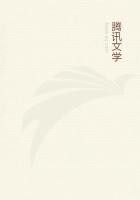Speculations: nature of matter: lines of force The scientific picture of Faraday would not be complete without a reference to his speculative writings. On Friday, January 19, 1844, he opened the weekly evening-meetings of the Royal Institution by a discourse entitled 'A speculation touching Electric Conduction and the nature of Matter.' In this discourse he not only attempts the overthrow of Dalton's Theory of Atoms, but also the subversion of all ordinary scientific ideas regarding the nature and relations of Matter and Force. He objected to the use of the term atom:--'I have not yet found a mind,' he says, 'that did habitually separate it from its accompanying temptations; and there can be no doubt that the words definite proportions, equivalent, primes, &c., which did and do fully express all the facts of what is usually called the atomic theory in chemistry, were dismissed because they were not expressive enough, and did not say all that was in the mind of him who used the word atom in their stead.'
A moment will be granted me to indicate my own view of Faraday's position here. The word 'atom' was not used in the stead of definite proportions, equivalents, or primes. These terms represented facts that followed from, but were not equivalent to, the atomic theory. Facts cannot satisfy the mind: and the law of definite combining proportions being once established, the question 'why should combination take place according to that law?' is inevitable. Dalton answered this question by the enunciation of the Atomic Theory, the fundamental idea of which is, in my opinion, perfectly secure. The objection of Faraday to Dalton might be urged with the same substantial force against Newton: it might be stated with regard to the planetary motions that the laws of Kepler revealed the facts; that the introduction of the principle of gravitation was an addition to the facts. But this is the essence of all theory. The theory is the backward guess from fact to principle; the conjecture, or divination regarding something, which lies behind the facts, and from which they flow in necessary sequence. If Dalton's theory, then, account for the definite proportions observed in the combinations of chemistry, its justification rests upon the same basis as that of the principle of gravitation. All that can in strictness be said in either case is that the facts occur as if the principle existed.
The manner in which Faraday himself habitually deals with his hypotheses is revealed in this lecture. He incessantly employed them to gain experimental ends, but he incessantly took them down, as an architect removes the scaffolding when the edifice is complete.
'I cannot but doubt,' he says, 'that he who as a mere philosopher has most power of penetrating the secrets of nature, and guessing by hypothesis at her mode of working, will also be most careful for his own safe progress and that of others, to distinguish the knowledge which consists of assumption, by which I mean theory and hypothesis, from that which is the knowledge of facts and laws.' Faraday himself, in fact, was always 'guessing by hypothesis,' and ****** theoretic divination the stepping-stone to his experimental results.
I have already more than once dwelt on the vividness with which he realised molecular conditions; we have a fine example of this strength and brightness of imagination in the present 'speculation.'
He grapples with the notion that matter is made up of particles, not in absolute contact, but surrounded by interatomic space. 'Space,' he observes, 'must be taken as the only continuous part of a body so constituted. Space will permeate all masses of matter in every direction like a net, except that in place of meshes it will form cells, isolating each atom from its neighbours, itself only being continuous.'
Let us follow out this notion; consider, he argues, the case of a non-conductor of electricity, such for example as shell-lac, with its molecules, and intermolecular spaces running through the mass.
In its case space must be an insulator; for if it were a conductor it would resemble 'a fine metallic web,' penetrating the lac in every direction. But the fact is that it resembles the wax of black sealing-wax, which surrounds and insulates the particles of conducting carbon, interspersed throughout its mass. In the case of shell-lac, therefore, space is an insulator.
But now, take the case of a conducting metal. Here we have, as before, the swathing of space round every atom. If space be an insulator there can be no transmission of electricity from atom to atom. But there is transmission; hence space is a conductor. Thus he endeavours to hamper the atomic theory. 'The reasoning,' he says, 'ends in a subversion of that theory altogether; for if space be an insulator it cannot exist in conducting bodies, and if it be a conductor it cannot exist in insulating bodies. Any ground of reasoning,' he adds, as if carried away by the ardour of argument, 'which tends to such conclusions as these must in itself be false.'
He then tosses the atomic theory from horn to horn of his dilemmas.
What do we know, he asks, of the atom apart from its force?
You imagine a nucleus which may be called a, and surround it by forces which may be called m; 'to my mind the a or nucleus vanishes, and the substance consists in the powers of m. And indeed what notion can we form of the nucleus independent of its powers?
What thought remains on which to hang the imagination of an a independent of the acknowledged forces?' Like Boscovich, he abolishes the atom, and puts a 'centre of force' in its place.
With his usual courage and sincerity he pushes his view to its utmost consequences. 'This view of the constitution of matter,' he continues, 'would seem to involve necessarily the conclusion that matter fills all space, or at least all space to which gravitation extends; for gravitation is a property of matter dependent on a certain force, and it is this force which constitutes the matter.















